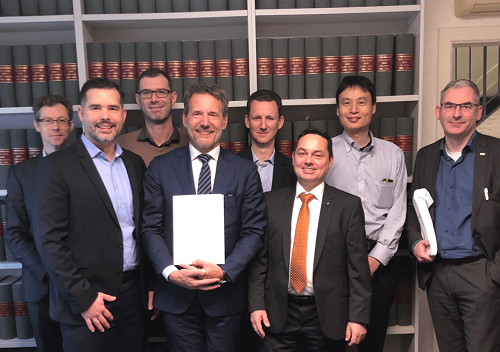
On December 21
stUnifly announced it
completed a B-round of financing which included an influx of funding from DFS International Business Services (DFS IDB). This was a big deal for the Belgian company, but also noteworthy for the drone industry since DFS IDB is a wholly owned financial subsidiary of DFS, which is the aircraft navigation service provider (ANSP) of Germany. This is the equivalent of the FAA investing in a private company in order to lead the development of a drone traffic management system, also known as a UTM (UAS traffic management) system.
DFS IBS de facto acquired a 23.3 percent share in the Belgian software company and gained a seat at its board. This investment forms the basis for the joint development and implementation of the first European operational air traffic management system for unmanned aircraft vehicles in 2019. In this way, DFS is expanding its role in implementing a system that would allow modern drone technology to be integrated into controlled airspace over Germany.
DFS, the German air navigation service provider, is a State-owned company under private law with 5,400 employees. Around 2,000 air traffic controllers guide up to 10,000 flights in German airspace every day, about three million movements every year. This makes Germany the country with the highest traffic volume in Europe. The company operates control centres in Langen, Bremen, Karlsruhe and Munich as well as control towers at the 16 international airports in Germany.
The investment agreement specifies that now DFS owns a total of 217,791
shares in Unifly, worth approximately EUR 13 million. This makes DFS the largest shareholder of the Belgian software development company.
“With this investment, we have substantially enhanced our software development competence,” said Klaus Dieter Scheurle, CEO of DFS Deutsche Flugsicherung. “This is a strategic success factor for the digital future of DFS, in particular for positioning ourselves in unmanned aviation.”
Given the significance of a European ANSP acquiring a stake in a private UTM developer, we reached out to Marc Kegelaers, CEO of Unifly to talk to him about the importance of the announcement and the immediate implications for his company.
Juan: Did the investment by such a large organization in your company come with some strings attached?
Marc: Not really; DFS will continue to be our customer and now as a minority shareholder and member of our board, they will be able to add their considerable knowledge of the industry to our development efforts, but our direction continues to be the same; only reinforced by the credibility of DFS.
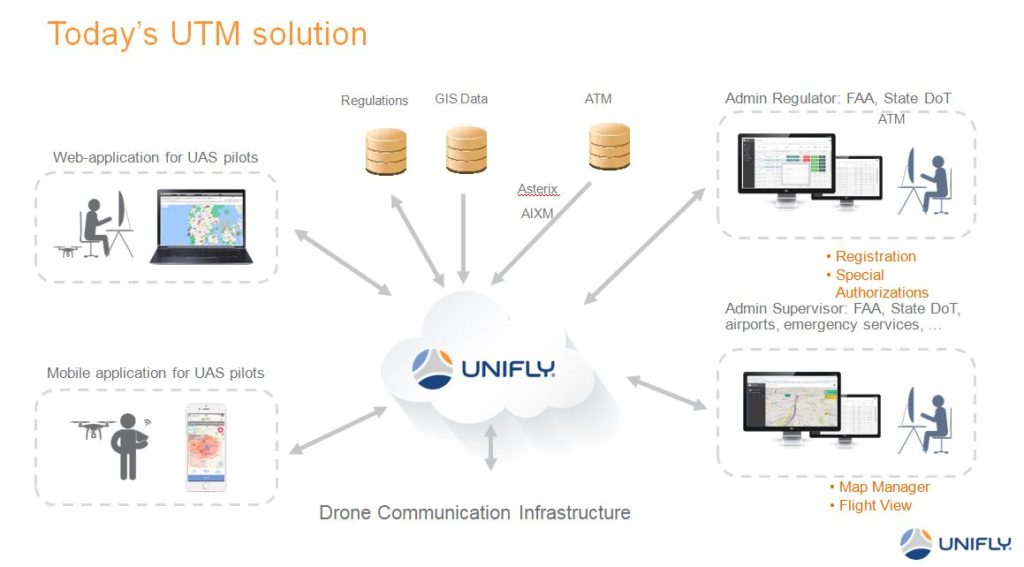 Juan
Juan: Can you name the rest of your shareholders?
Marc: In addition to DFS IBS and the Unifly management, the remaining shareholders are the Belgian venture capital companies QBIC Venture Partners and PMV, the research organization VITO as well as the Japanese company Terra Drone. This injection of capital is a big message to the market that Unifly is here to stay; we’re not going anywhere and that offers future customers the safety to know that we will be in this market for years and decades to come.
Juan: With regards to the technology what can you tell us?
Marc: We develop and sell our main product, Unifly UTMS, a cloud-based software platform to integrate low-flying unmanned aircraft systems into the airspace safely. With the system, we want to serve the needs of ALL stakeholders in the industry in a comprehensive and coordinated way. This includes parties that are not the “usual suspects” in the word of air traffic management, such as local authorities. As part of the architecture, we provide our customers with dynamic online maps and mobile apps which are available as rebranded versions including multilingual support. Authorities can configure the layout, user interface and available data to suit their individual needs and preferences.
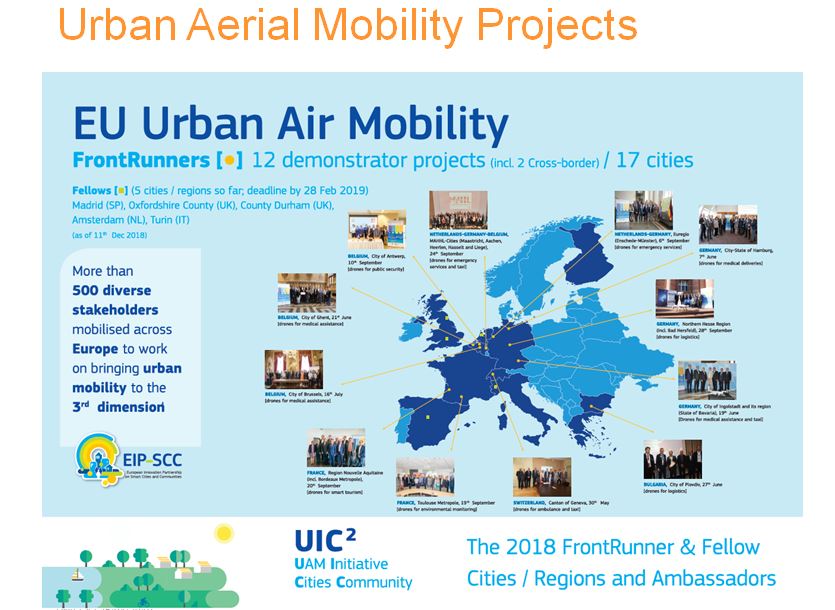 Juan
Juan: Europe seems to be very active in all things UTM-related and the continental push towards integration feels unabated by all the incursions and incidents. Do you have any comments?
Marc: Yes! The European Commission is actively funding about ten active pilot UTM ( or U-space ) projects to test the technology and to define a common UTM approach for Europe. Unifly is part of most of these research and demonstration projects. You can check the specifics of every project
on our website. That series of initiatives gives the regulators throughout the continent the safety that a secure system will emerge that would allow a safe integration.
Juan: What are Germany’s DFS specific plans for Unifly’s platform?
Marc: The investment in Unifly will allow DFS to continue its activities for the integration of manned and unmanned aviation over Germany. The successes of 2018 have been impressive. In June, the first controlled drone flight at an international airport was conducted in Frankfurt. Together with Fraport, DFS successfully tested unmanned aircraft systems to monitor progress at the Terminal 3 building site. In addition, drone tracking has been optimised in various trials. Legally required flights along various infrastructure lines such as gas pipelines can now be conducted by drones instead of by helicopter, which means the commitment of DFS will soon find a practical application.
Juan: So, with cash in hand and lots of credibility in the market, what’s next for Unifly?
Marc: The future has never seen more promising! We are building a highly automated air traffic management system to handle a large number of unmanned devices flying in a challenging environment. We’re firmly convinced that our efforts will be used also to extend to manned aviation and to urban mobility services.
Juan: In other words, Unifly’s system can also be used for Urban Mobility applications, not necessarily unmanned?
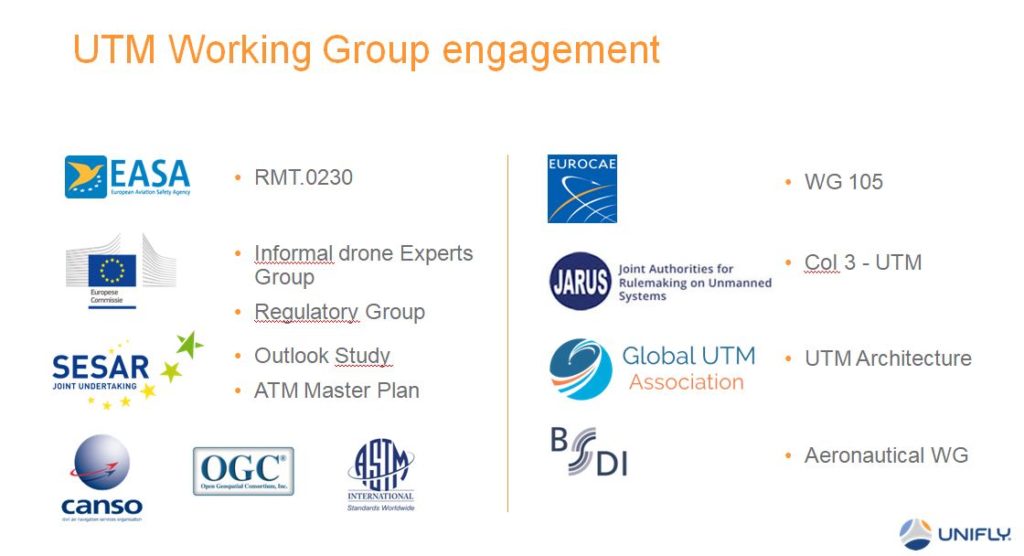 Marc
Marc: Yes, we’re creating an infrastructure with unmanned systems in mind, but it’s clearly the foundation for a more complex and far-reaching system to allow ANSP’s control manned flights too. One clear example is the fact that DFS has tested drones for inspecting its own manned systems. At Hannover Airport, the company used a drone to calibrate its instrument landing system for commercial aviation. Such calibrations are required by law and are used to check the precision and availability of air navigation services facilities at regular intervals.
This news is proof of how closely European companies, regulators and ANSP’s are working together to advance the cause of full integration of manned and unmanned vehicles in controlled airspace. DFS IDB’s investment in Unifly firmly establishes not only that ANSP’s believe in this future for all of Europe, but that they’re prepared to support it in every way that matters.
 On December 21stUnifly announced it completed a B-round of financing which included an influx of funding from DFS International Business Services (DFS IDB). This was a big deal for the Belgian company, but also noteworthy for the drone industry since DFS IDB is a wholly owned financial subsidiary of DFS, which is the aircraft navigation service provider (ANSP) of Germany. This is the equivalent of the FAA investing in a private company in order to lead the development of a drone traffic management system, also known as a UTM (UAS traffic management) system.DFS IBS de facto acquired a 23.3 percent share in the Belgian software company and gained a seat at its board. This investment forms the basis for the joint development and implementation of the first European operational air traffic management system for unmanned aircraft vehicles in 2019. In this way, DFS is expanding its role in implementing a system that would allow modern drone technology to be integrated into controlled airspace over Germany.DFS, the German air navigation service provider, is a State-owned company under private law with 5,400 employees. Around 2,000 air traffic controllers guide up to 10,000 flights in German airspace every day, about three million movements every year. This makes Germany the country with the highest traffic volume in Europe. The company operates control centres in Langen, Bremen, Karlsruhe and Munich as well as control towers at the 16 international airports in Germany.The investment agreement specifies that now DFS owns a total of 217,791 shares in Unifly, worth approximately EUR 13 million. This makes DFS the largest shareholder of the Belgian software development company.“With this investment, we have substantially enhanced our software development competence,” said Klaus Dieter Scheurle, CEO of DFS Deutsche Flugsicherung. “This is a strategic success factor for the digital future of DFS, in particular for positioning ourselves in unmanned aviation.”Given the significance of a European ANSP acquiring a stake in a private UTM developer, we reached out to Marc Kegelaers, CEO of Unifly to talk to him about the importance of the announcement and the immediate implications for his company. Juan: Did the investment by such a large organization in your company come with some strings attached?Marc: Not really; DFS will continue to be our customer and now as a minority shareholder and member of our board, they will be able to add their considerable knowledge of the industry to our development efforts, but our direction continues to be the same; only reinforced by the credibility of DFS.
On December 21stUnifly announced it completed a B-round of financing which included an influx of funding from DFS International Business Services (DFS IDB). This was a big deal for the Belgian company, but also noteworthy for the drone industry since DFS IDB is a wholly owned financial subsidiary of DFS, which is the aircraft navigation service provider (ANSP) of Germany. This is the equivalent of the FAA investing in a private company in order to lead the development of a drone traffic management system, also known as a UTM (UAS traffic management) system.DFS IBS de facto acquired a 23.3 percent share in the Belgian software company and gained a seat at its board. This investment forms the basis for the joint development and implementation of the first European operational air traffic management system for unmanned aircraft vehicles in 2019. In this way, DFS is expanding its role in implementing a system that would allow modern drone technology to be integrated into controlled airspace over Germany.DFS, the German air navigation service provider, is a State-owned company under private law with 5,400 employees. Around 2,000 air traffic controllers guide up to 10,000 flights in German airspace every day, about three million movements every year. This makes Germany the country with the highest traffic volume in Europe. The company operates control centres in Langen, Bremen, Karlsruhe and Munich as well as control towers at the 16 international airports in Germany.The investment agreement specifies that now DFS owns a total of 217,791 shares in Unifly, worth approximately EUR 13 million. This makes DFS the largest shareholder of the Belgian software development company.“With this investment, we have substantially enhanced our software development competence,” said Klaus Dieter Scheurle, CEO of DFS Deutsche Flugsicherung. “This is a strategic success factor for the digital future of DFS, in particular for positioning ourselves in unmanned aviation.”Given the significance of a European ANSP acquiring a stake in a private UTM developer, we reached out to Marc Kegelaers, CEO of Unifly to talk to him about the importance of the announcement and the immediate implications for his company. Juan: Did the investment by such a large organization in your company come with some strings attached?Marc: Not really; DFS will continue to be our customer and now as a minority shareholder and member of our board, they will be able to add their considerable knowledge of the industry to our development efforts, but our direction continues to be the same; only reinforced by the credibility of DFS. Juan: Can you name the rest of your shareholders?Marc: In addition to DFS IBS and the Unifly management, the remaining shareholders are the Belgian venture capital companies QBIC Venture Partners and PMV, the research organization VITO as well as the Japanese company Terra Drone. This injection of capital is a big message to the market that Unifly is here to stay; we’re not going anywhere and that offers future customers the safety to know that we will be in this market for years and decades to come.Juan: With regards to the technology what can you tell us?Marc: We develop and sell our main product, Unifly UTMS, a cloud-based software platform to integrate low-flying unmanned aircraft systems into the airspace safely. With the system, we want to serve the needs of ALL stakeholders in the industry in a comprehensive and coordinated way. This includes parties that are not the “usual suspects” in the word of air traffic management, such as local authorities. As part of the architecture, we provide our customers with dynamic online maps and mobile apps which are available as rebranded versions including multilingual support. Authorities can configure the layout, user interface and available data to suit their individual needs and preferences.
Juan: Can you name the rest of your shareholders?Marc: In addition to DFS IBS and the Unifly management, the remaining shareholders are the Belgian venture capital companies QBIC Venture Partners and PMV, the research organization VITO as well as the Japanese company Terra Drone. This injection of capital is a big message to the market that Unifly is here to stay; we’re not going anywhere and that offers future customers the safety to know that we will be in this market for years and decades to come.Juan: With regards to the technology what can you tell us?Marc: We develop and sell our main product, Unifly UTMS, a cloud-based software platform to integrate low-flying unmanned aircraft systems into the airspace safely. With the system, we want to serve the needs of ALL stakeholders in the industry in a comprehensive and coordinated way. This includes parties that are not the “usual suspects” in the word of air traffic management, such as local authorities. As part of the architecture, we provide our customers with dynamic online maps and mobile apps which are available as rebranded versions including multilingual support. Authorities can configure the layout, user interface and available data to suit their individual needs and preferences. Juan: Europe seems to be very active in all things UTM-related and the continental push towards integration feels unabated by all the incursions and incidents. Do you have any comments?Marc: Yes! The European Commission is actively funding about ten active pilot UTM ( or U-space ) projects to test the technology and to define a common UTM approach for Europe. Unifly is part of most of these research and demonstration projects. You can check the specifics of every project on our website. That series of initiatives gives the regulators throughout the continent the safety that a secure system will emerge that would allow a safe integration.Juan: What are Germany’s DFS specific plans for Unifly’s platform?Marc: The investment in Unifly will allow DFS to continue its activities for the integration of manned and unmanned aviation over Germany. The successes of 2018 have been impressive. In June, the first controlled drone flight at an international airport was conducted in Frankfurt. Together with Fraport, DFS successfully tested unmanned aircraft systems to monitor progress at the Terminal 3 building site. In addition, drone tracking has been optimised in various trials. Legally required flights along various infrastructure lines such as gas pipelines can now be conducted by drones instead of by helicopter, which means the commitment of DFS will soon find a practical application.Juan: So, with cash in hand and lots of credibility in the market, what’s next for Unifly?Marc: The future has never seen more promising! We are building a highly automated air traffic management system to handle a large number of unmanned devices flying in a challenging environment. We’re firmly convinced that our efforts will be used also to extend to manned aviation and to urban mobility services.Juan: In other words, Unifly’s system can also be used for Urban Mobility applications, not necessarily unmanned?
Juan: Europe seems to be very active in all things UTM-related and the continental push towards integration feels unabated by all the incursions and incidents. Do you have any comments?Marc: Yes! The European Commission is actively funding about ten active pilot UTM ( or U-space ) projects to test the technology and to define a common UTM approach for Europe. Unifly is part of most of these research and demonstration projects. You can check the specifics of every project on our website. That series of initiatives gives the regulators throughout the continent the safety that a secure system will emerge that would allow a safe integration.Juan: What are Germany’s DFS specific plans for Unifly’s platform?Marc: The investment in Unifly will allow DFS to continue its activities for the integration of manned and unmanned aviation over Germany. The successes of 2018 have been impressive. In June, the first controlled drone flight at an international airport was conducted in Frankfurt. Together with Fraport, DFS successfully tested unmanned aircraft systems to monitor progress at the Terminal 3 building site. In addition, drone tracking has been optimised in various trials. Legally required flights along various infrastructure lines such as gas pipelines can now be conducted by drones instead of by helicopter, which means the commitment of DFS will soon find a practical application.Juan: So, with cash in hand and lots of credibility in the market, what’s next for Unifly?Marc: The future has never seen more promising! We are building a highly automated air traffic management system to handle a large number of unmanned devices flying in a challenging environment. We’re firmly convinced that our efforts will be used also to extend to manned aviation and to urban mobility services.Juan: In other words, Unifly’s system can also be used for Urban Mobility applications, not necessarily unmanned? Marc: Yes, we’re creating an infrastructure with unmanned systems in mind, but it’s clearly the foundation for a more complex and far-reaching system to allow ANSP’s control manned flights too. One clear example is the fact that DFS has tested drones for inspecting its own manned systems. At Hannover Airport, the company used a drone to calibrate its instrument landing system for commercial aviation. Such calibrations are required by law and are used to check the precision and availability of air navigation services facilities at regular intervals. This news is proof of how closely European companies, regulators and ANSP’s are working together to advance the cause of full integration of manned and unmanned vehicles in controlled airspace. DFS IDB’s investment in Unifly firmly establishes not only that ANSP’s believe in this future for all of Europe, but that they’re prepared to support it in every way that matters.
Marc: Yes, we’re creating an infrastructure with unmanned systems in mind, but it’s clearly the foundation for a more complex and far-reaching system to allow ANSP’s control manned flights too. One clear example is the fact that DFS has tested drones for inspecting its own manned systems. At Hannover Airport, the company used a drone to calibrate its instrument landing system for commercial aviation. Such calibrations are required by law and are used to check the precision and availability of air navigation services facilities at regular intervals. This news is proof of how closely European companies, regulators and ANSP’s are working together to advance the cause of full integration of manned and unmanned vehicles in controlled airspace. DFS IDB’s investment in Unifly firmly establishes not only that ANSP’s believe in this future for all of Europe, but that they’re prepared to support it in every way that matters.

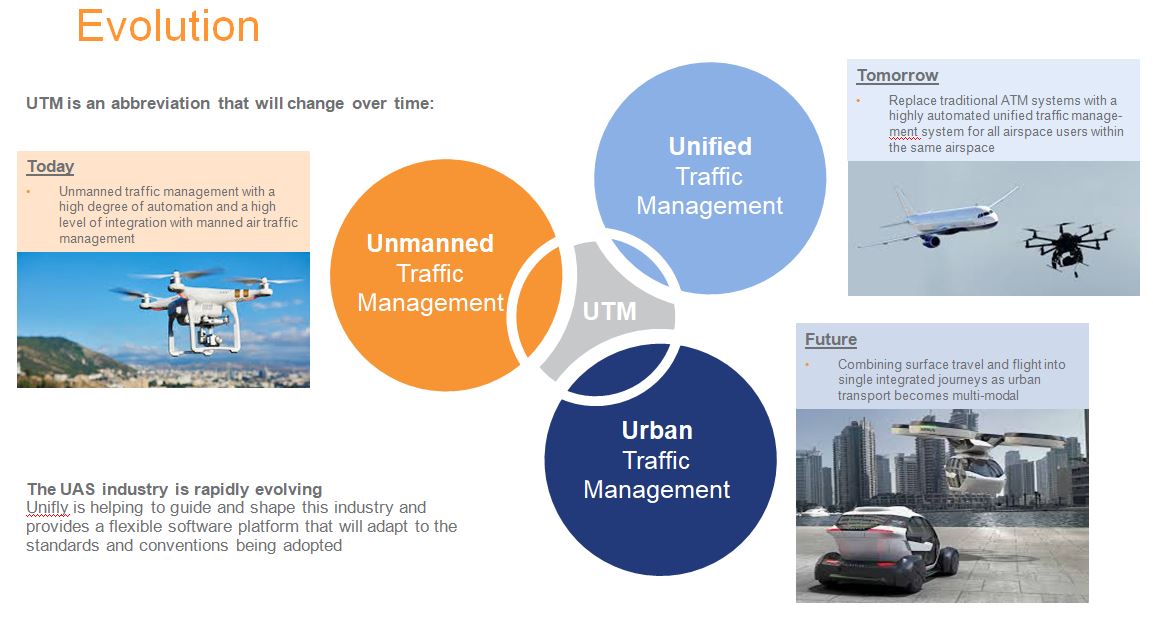


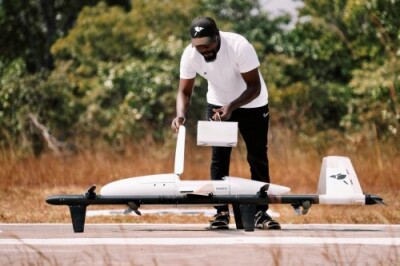









Comments